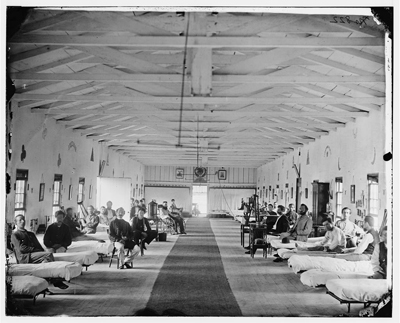by Philip Shackleford

Although no one liked it, most soldiers in the Union armies understood why the Draft of 1863 was necessary.
It was a crucial point in the course of the war. The conflict still raged on, already much longer and bloodier than anyone had imagined. Yet for many in the Union armies, it was time to go home. Most had enlisted for a term of three years, and after long months of hard fighting and harder marching, their thoughts were turned homeward.
But the war was far from finished.


In 1863 the Union army decided that some new measures would have to be taken and instituted what has become known as the Draft of 1863. As each state in the Union was called to meet its quota, the draft provided for such establishments as the bounty system, where a draftee could choose a replacement and pay him to serve in his stead.
The concept of serving for a bounty angered faithful Union soldiers almost as much as Northern Copperheadism had a year previous.
One such soldier, Alpheus S. Bloomfield, wrote a rather opinionated letter back to his family in Portage County. He wrote: “I am of about the same opinion as you on men enlisting for money. I do not think any one can ever be called a good soldier who enlists of money.”
Another Portage soldier, Ebenezer Bissel, put it this way: “I am sorry they have got to go to drafting, for I should think there was enough young men in Ohio to put down this rebellion . . . without drafting. I should hate to have the name of going to war that way.”
Although no one approved, most Union men understood the necessity and encouraged others not to avoid the draft. Alpheus Bloomfield wrote to his brother early in 1863, saying: “I do not know that there is any disgrace to be in the draft, but I do think it is a disgrace for one to run from the draft. . . . Go cheerfully and what ever you do do not get down hearted.”
In the end, the draft probably meant the difference between victory and defeat for the Union army. Without the men raised by the draft in 1863, top generals such as Grant and Sherman would have been woefully ill equipped for the important campaigns that lay ahead. Even though many did not agree, Union men rose to the occasion and met the needs that were before them, placing the preservation of the Union ahead of their personal opinions.
